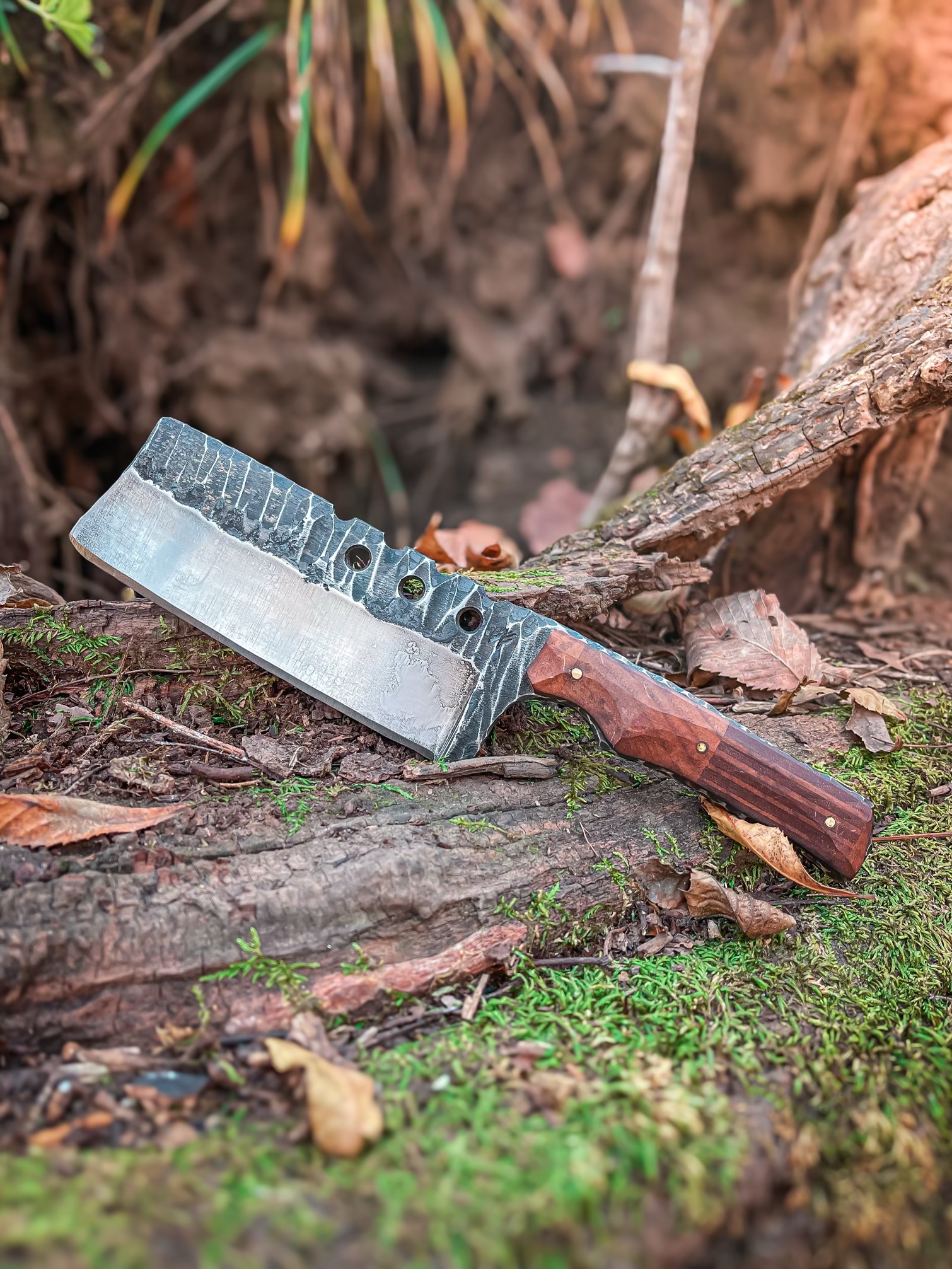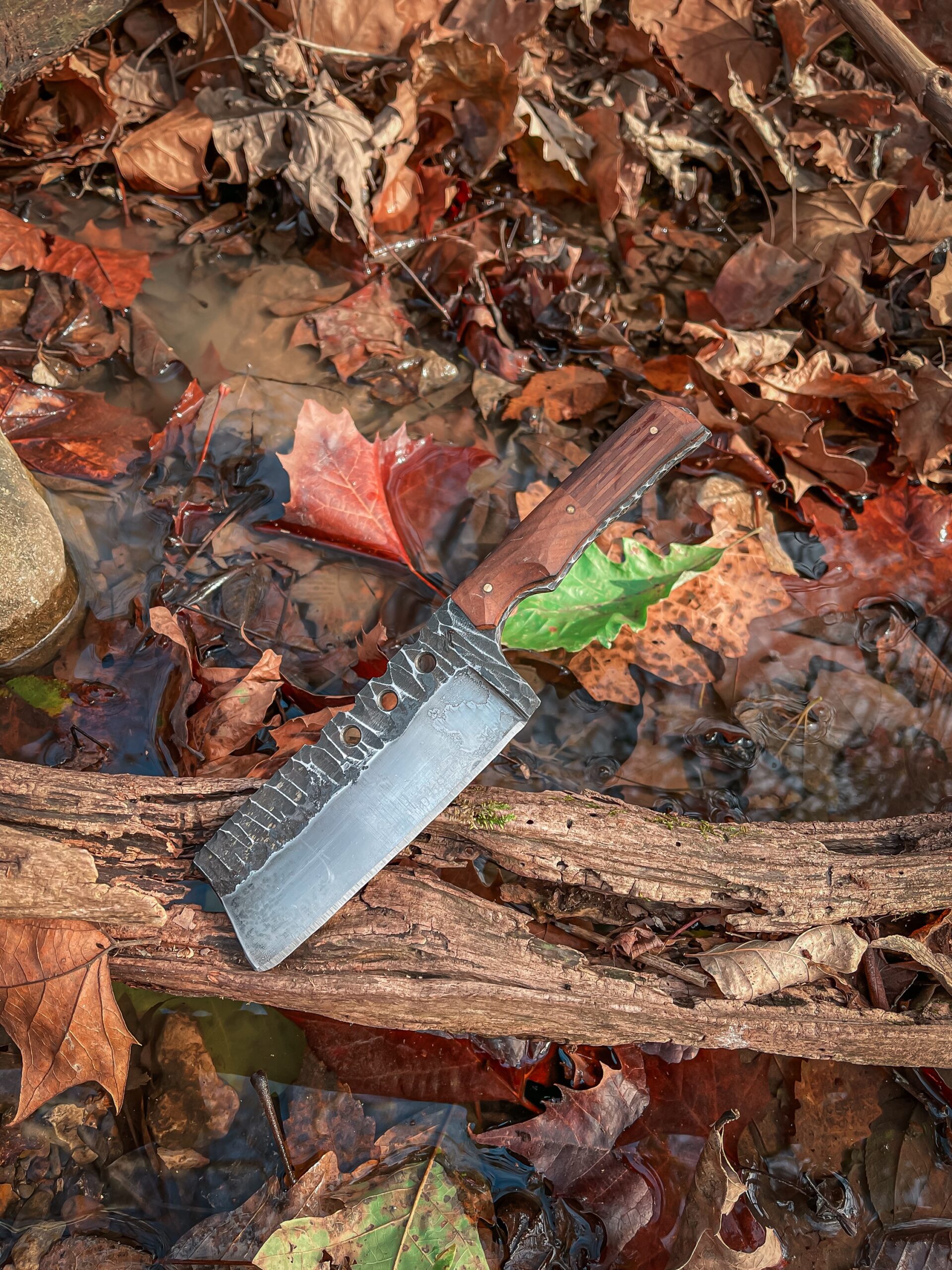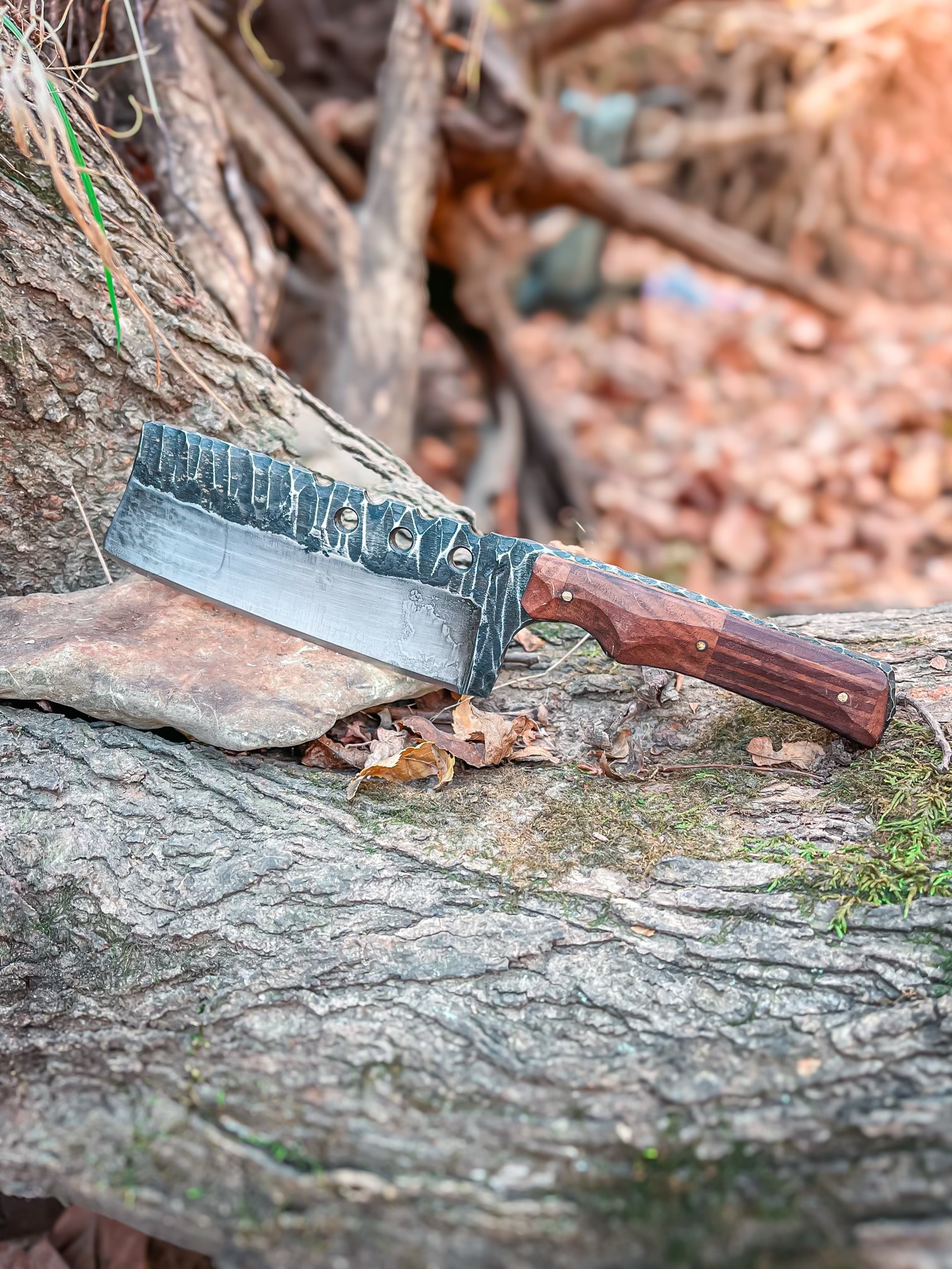Hand-Forged Steel Knife – Jacklyn
$200.00
This hand-forged steel knife, named Jacklyn, features a unique butcher block black walnut handle, which is quite fitting for this cleaver-styled blade.
Read below to learn more!
Out of stock
Description
This hand-forged steel knife, named Jacklyn, features a unique butcher block black walnut handle, which is quite fitting for this cleaver-styled blade.
Jacklyn was forged from a salvaged lawnmower blade and is beautifully finished with a grooved spine for grip and a rock-textured pattern.
Dimensions: Handle to Tip (9.25 Inches), Blade (5×2 Inches)
Weight: 8.8 oz.
Each hand-forged steel knife from our forge will carry the hallmarks of a handmade item, with its own unique markings and character. No two are ever the same, even if they feature the same design. A truly one-of-a-kind gift, handmade in Missouri. See all available knives or find more on the Feral Homestead Instagram!
A NOTE ABOUT HAND-FORGED STEEL KNIVES
Most of our knives are made of high carbon steel from recycled steel, unless noted in the listing above. High carbon steel requires more maintenance, but is long lasting and holds an edge longer. It also develops a natural patina known as blacking that makes each one truly unique. This is what most European knives are, and is known as black steel.
The only downside to high carbon steel is it can easily rust if not properly cared for. In order to prevent this, please remember the following and care for your new knife accordingly.
In order to keep your new knife in the best shape and help it patina well, we recommend you don’t wash it, and instead simply wipe it off as soon as you’ve finished using it. You can wash it by hand if needed, but do NOT leave water on it. Do not leave it in a sink of dishes, do not soak it, and don’t leave it to air dry on a draining rack. Wash and dry it immediately after use to avoid rust.
Additionally, no matter how well you take care of a high-polish knife, it will not stay shiny. It will turn a dull gray color over time, either uniformly or in marks over the used surface. This is the nature of the steel and doesn’t interfere with its use or hygiene. Some foods, including acidic foods like lemon and onion, will mark it instantly. It isn’t necessary for the performance of the knife, but if you’d like to return it to a high shine finish for cosmetic reasons, use a grinder or polisher. Alternatively, if you prefer to speed the patina process and achieve a uniform color, simply rub the blade with a cut onion half.
Used properly your knife should only have to be put on a sharpening stone once a month. If you use your knife daily, we recommend touching it up once a week for maximum sharpness, however.
Apply a light coating of olive, vegetable, canola, or sunflower oil periodically. For culinary knives, olive, vegetable, canola or sunflower oil is fine. You can also coat the interior of your sheath or knife block in oil, creating a water repellent environment to store your knife in.
If you do get rust spots, you can scrub light ones away with 0000 steel wool. Larger and deeper spots can be removed using wet and dry sand paper. Start with a 400 grit and work up to a 1,200 grit, finishing with a polishing grit.
Some common do’s and don’ts:
Don’t put knives in the dishwasher.
Don’t leave a knife soaking in a sink full of water.
Don’t store in a wet sheath.
Don’t use a knife as a lever, hammer, shovel, etc.
Don’t cut on a glass, stone or steel surface, use wood or plastic.
NEVER put into a fire, onto a hot plate or in contact with any other heat source.
Do keep your knife sharp.
Do keep it stored correctly and responsibly.
Do remember to clean and oil the handle as well as the blade.
Additional information
| Weight | 11 oz |
|---|---|
| Chain Options | No Chain, Add a Chain |
Only logged in customers who have purchased this product may leave a review.



Reviews
There are no reviews yet.